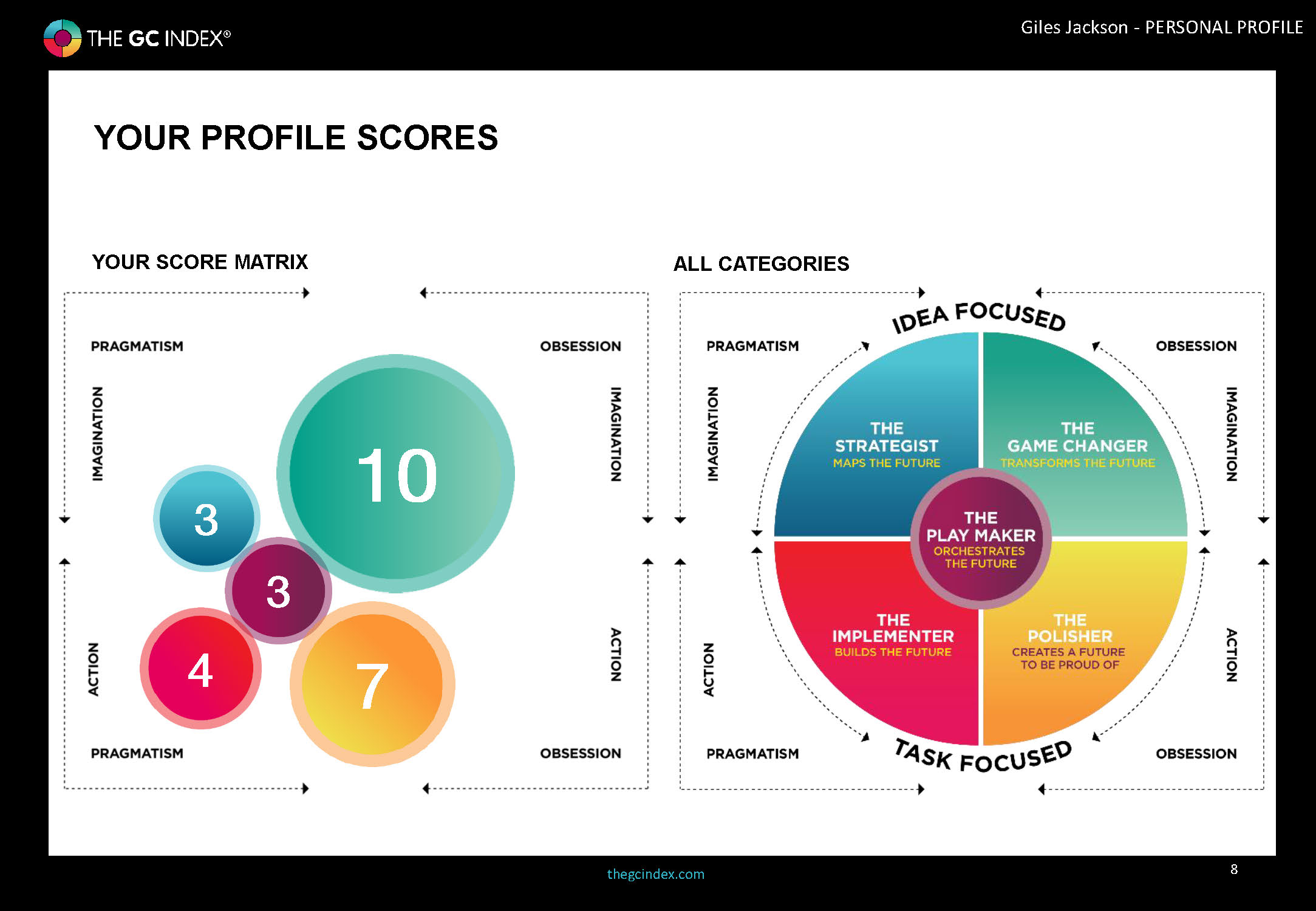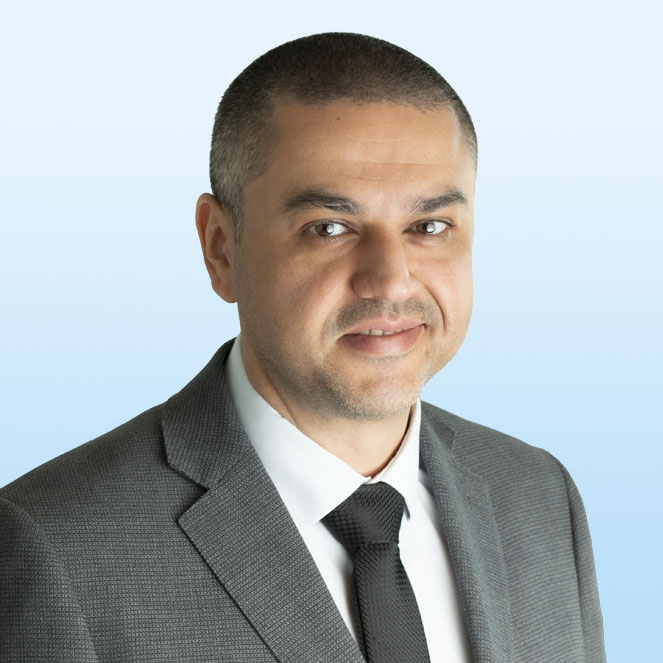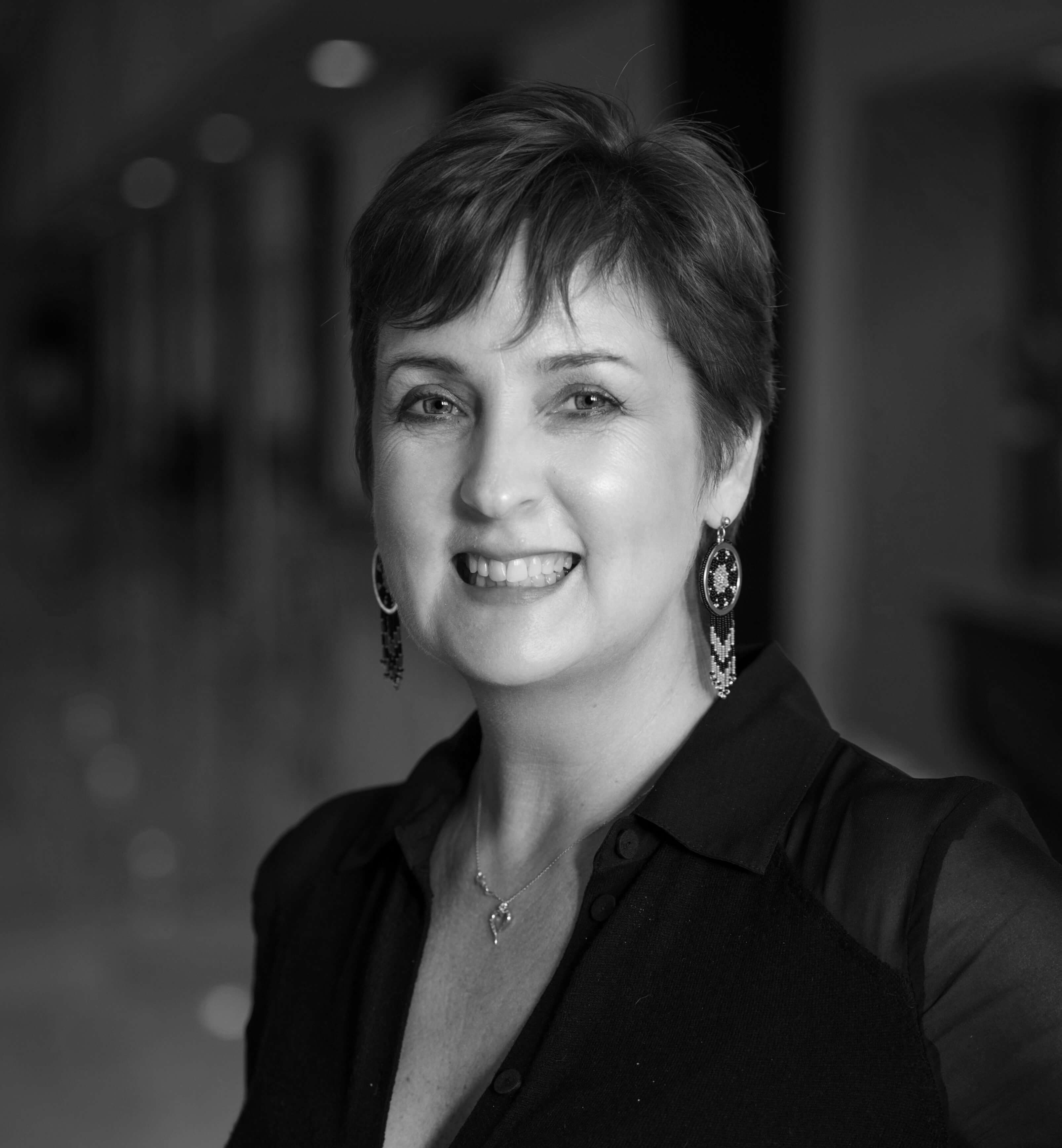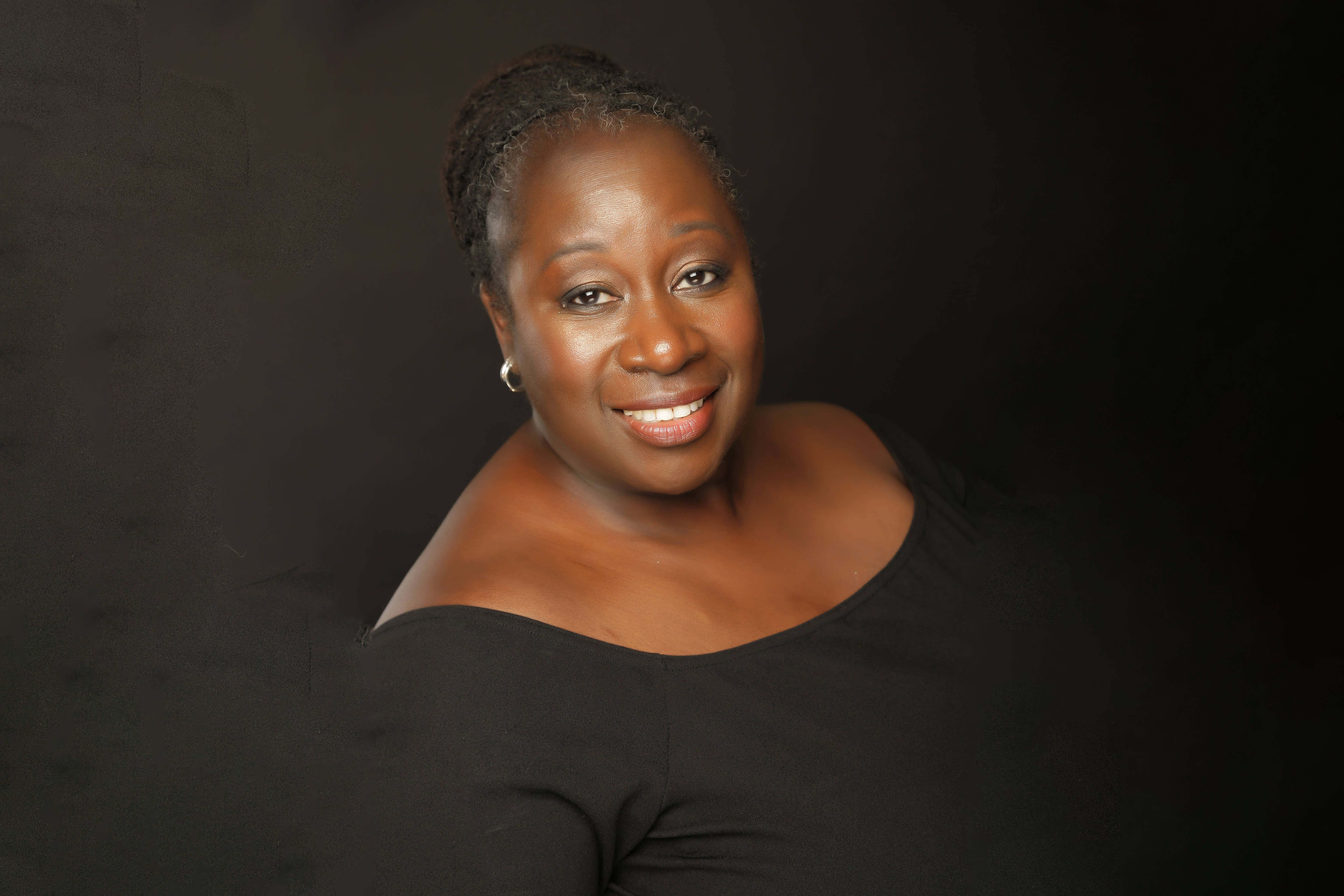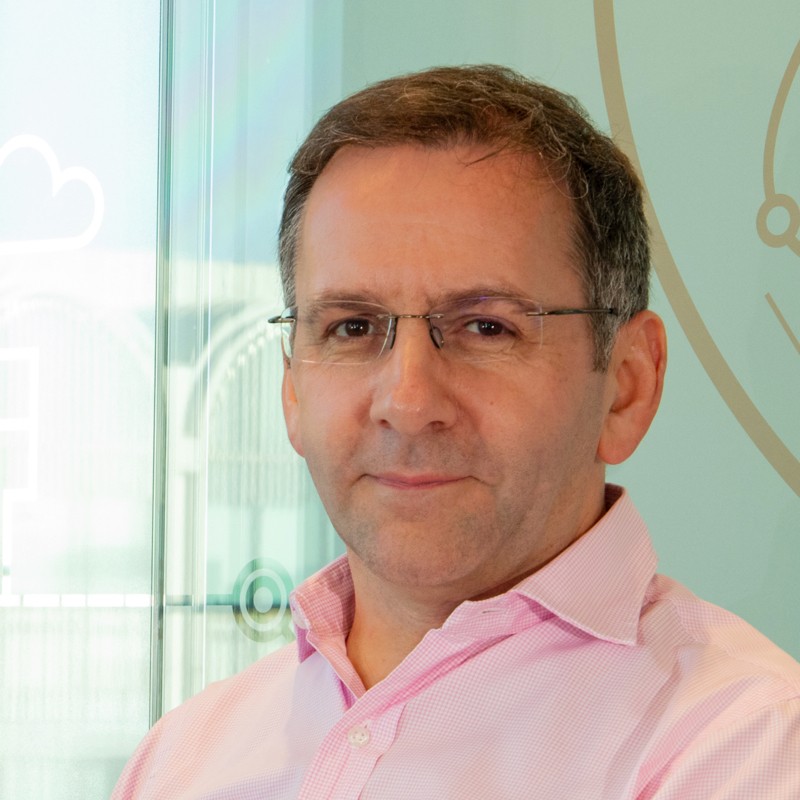
Professor of Business, Sustainability & Society
Game Changer/PolisherGiles is a Professor of Business, Sustainability & Society. With a huge passion for sustainability, which was a focus of his doctoral dissertation back in 1994, he directs hands-on MBA consulting projects with such clients as Space for Giants, the elephant conservation NGO. On the research front, he recently completed an article about ecotourism for Oxford University Press (in review).
Outside of school, he enjoys working on various entrepreneurial and creative projects, which interconnect to enrich his teaching. He assists W2E, a German wind engineering company, in international business development. He set up his wife's physical therapy practice, and also designs textiles promoting social causes, working with such organizations as WWF UK and UN House Scotland. He reserves Friday afternoons in the local blacksmith shop. Giles likes to keep things varied and interesting!
1. You’ve clearly had a successful career so far, so what does your GC Index profile tells us about what actually underpins your success and what does success mean to you?
I’d say personally, I think I prefer the word ‘fulfilment’ than success, because to fulfil is a verb; it’s to carry something out, hopefully that leads to results. That’s what we all want, but also a sense of fulfilment, and I think this can come from very different parts of your life, so success for me is a bit like the Financial Times without the Life & Arts section. It needs to be more holistic and so fulfilment includes and embraces, not just one’s career, but also your family life – marriage, children, extended family, friends, and so on and so forth.
I think we need a 360-degree view and I think fulfilment embraces that, but certainly if you’re only thinking in terms of career, then perhaps we can use success as a as a metric for that. But, in general, I’m trying to maintain, in spite of all the things pulling us this way and that way, a sense of balance in life which I think is really key. Just about to celebrate my 30th year of marriage, hopefully I’ve managed that element.
Back to the original question, which is what does the GC index indicate? I think is a really interesting framework because what it really describes is the genesis of any given project and bringing it to fruition, so that sense of fulfilment or fulfilling something is described by all of the different domains that you see in the GC Index.
If you look and take that sort of view from 35,000 feet, it’s clear that I feel most engaged and energised on the front and back ends of a project. On the front end, what energises me are ideas and possibilities; the term ‘Game Changer’ is used. I think it’s good that it’s described as a proclivity, i.e. an inclination and a tendency, as opposed to an objective fact, in the sense that it is really not up to me to decide whether I’ve changed the game in any different given realm. That’s for the world to see, or maybe for posterity to decide. But at least that’s the mindset that I go into things with, so yes, I feel most energised on the front end of an impactful project, where we were trying to map out the possibilities and it’s all about free associative thinking.
It’s about thinking, responding to imperatives, recognising that our responses have consequences both to events, and also for our lives and the lives of our family, and so and so forth. Then, on the back end of the project it’s the Polisher aspect, so you know for a project to have impact, generally speaking, in my view, it needs to be at a certain standard and so polishing (Polisher) is important.
Also, where I am less strong is sort of in the in-between in that full response cycle, and that’s where I have to realise my own limitations and work with others.
Angie Beeston (Interviewer): That’s when teams come in isn’t it? When we were chatting about it earlier, the incredible positive side it gives you, that energy and creativity. Clearly you are having got an incredibly creative approach to things, so certainly that Game Changer score being at a 10 is on a high level. I know that we were chatting about it, it’s about having a patient side to counterbalance it, as you have said.
I think we need a 360-degree view and I think fulfilment embraces that, but certainly if you’re only thinking in terms of career, then perhaps we can use success as a as a metric for that. But, in general, I’m trying to maintain, in spite of all the things pulling us this way and that way, a sense of balance in life which I think is really key. Just about to celebrate my 30th year of marriage, hopefully I’ve managed that element.
Back to the original question, which is what does the GC index indicate? I think is a really interesting framework because what it really describes is the genesis of any given project and bringing it to fruition, so that sense of fulfilment or fulfilling something is described by all of the different domains that you see in the GC Index.
If you look and take that sort of view from 35,000 feet, it’s clear that I feel most engaged and energised on the front and back ends of a project. On the front end, what energises me are ideas and possibilities; the term ‘Game Changer’ is used. I think it’s good that it’s described as a proclivity, i.e. an inclination and a tendency, as opposed to an objective fact, in the sense that it is really not up to me to decide whether I’ve changed the game in any different given realm. That’s for the world to see, or maybe for posterity to decide. But at least that’s the mindset that I go into things with, so yes, I feel most energised on the front end of an impactful project, where we were trying to map out the possibilities and it’s all about free associative thinking.
It’s about thinking, responding to imperatives, recognising that our responses have consequences both to events, and also for our lives and the lives of our family, and so and so forth. Then, on the back end of the project it’s the Polisher aspect, so you know for a project to have impact, generally speaking, in my view, it needs to be at a certain standard and so polishing (Polisher) is important.
Also, where I am less strong is sort of in the in-between in that full response cycle, and that’s where I have to realise my own limitations and work with others.
Angie Beeston (Interviewer): That’s when teams come in isn’t it? When we were chatting about it earlier, the incredible positive side it gives you, that energy and creativity. Clearly you are having got an incredibly creative approach to things, so certainly that Game Changer score being at a 10 is on a high level. I know that we were chatting about it, it’s about having a patient side to counterbalance it, as you have said.
When in your career have you felt that your role was most ‘in tune’ with your proclivities?
It is making the most of one’s proclivities and it’s also [about] preventing them from sabotaging any given project. So, I think one of the biggest influences for me was Atul Gawande, [author of] “The Checklist Manifesto.” It is a very simple idea — the idea of making checklists — but it has had a profound impact, perhaps more than we recognise, and so organisation, I think, is one of the areas which is really important in order to develop things and bring them to fruition, to complete that cycle.
You need to be well organised, and, as somebody who tends to be quite scattered, I think organisational skills are important and for me that is making checklists but [also] making checklists combined with Mental Maps. So, I think spatially; I’m a visual thinker.
I like to put the checklists into one big map of all the projects that can be all the different fronts I’m working on, including the home front and, obligations to the children and making sure that my wife’s businesses is running as it should. But then also having checklists for my job as professor, and for the writing and research I have to do for various partnerships, and then other ventures.
I find that going through checklists on a daily basis enables me to really prioritise and make sense of things, and then, having recently been introduced to the concept of Territory Mapping, developed by Anthony Willoughby at The Nomadic School of Business, combining these two elements. A checklist tends to be a snapshot at one given point in time, whereas a Territory Map® really encourages you to think ahead with a vision, compare that to where you are on any given project, and then try and close the gap.
Angie Beeston (Interviewer): That’s very much about the strategy dimension of the GC Index where that proclivity, although that’s lower, is still an important aspect. I think that it’s the innovation and the vital, inspiring projects isn’t it that actually pulls through that’s what you love to do. Your natural inclination is to go there. But you’re absolutely right, it’s almost having a holistic approach and a helicopter view of the whole scenario and you have so many plates to spin, of course like many of us do, that it’s important that checklists can be your best friend for sure to keep everything on track and so on.
You need to be well organised, and, as somebody who tends to be quite scattered, I think organisational skills are important and for me that is making checklists but [also] making checklists combined with Mental Maps. So, I think spatially; I’m a visual thinker.
I like to put the checklists into one big map of all the projects that can be all the different fronts I’m working on, including the home front and, obligations to the children and making sure that my wife’s businesses is running as it should. But then also having checklists for my job as professor, and for the writing and research I have to do for various partnerships, and then other ventures.
I find that going through checklists on a daily basis enables me to really prioritise and make sense of things, and then, having recently been introduced to the concept of Territory Mapping, developed by Anthony Willoughby at The Nomadic School of Business, combining these two elements. A checklist tends to be a snapshot at one given point in time, whereas a Territory Map® really encourages you to think ahead with a vision, compare that to where you are on any given project, and then try and close the gap.
Angie Beeston (Interviewer): That’s very much about the strategy dimension of the GC Index where that proclivity, although that’s lower, is still an important aspect. I think that it’s the innovation and the vital, inspiring projects isn’t it that actually pulls through that’s what you love to do. Your natural inclination is to go there. But you’re absolutely right, it’s almost having a holistic approach and a helicopter view of the whole scenario and you have so many plates to spin, of course like many of us do, that it’s important that checklists can be your best friend for sure to keep everything on track and so on.
So, in your career when have you felt that your role was most in tune with your proclivities, with your inclinations?
Being influenced by Mihaly Csikszentmihalyi, who wrote the book “Flow”, I think that is what I would classify as the “flow” — he calls it ‘the psychology of optimal experiences,’ this idea of being in the zone — and I think whenever I feel like I’m in the zone, is when I am most fulfilled and most ‘in tune,’ as you put it.
That could be whether I’m involved deeply in writing, or finishing an article, or it could be in teaching. Being in the zone is when the classroom comes alive and when you feel that energy from your students, and the students all interact and ask questions. You lose all sense of time, that will be the example of being in the zone.
Angie Beeston (Interviewer): At that point, your Game Changer level is absolutely on fire essentially isn’t it because you can feel people responding to that and you might have probably encouraged them to come out of the shells a bit more. To actually start meeting you within that space. It is an incredibly powerful feeling to just be almost suspended, but it’s about the being in that moment, that present time, which of course is what mindfulness is about. That’s incredible that feeling I’m sure for you?
Yes, it is, I mean yes, I wish it happened a little more often! That’s when it’s more difficult, when you don’t have face-to-face it’s more difficult to establish that. But the other part is…just taking from the field of ecology, is this concept of the ‘edge effect,’ which is if you look at two ecosystems which are adjacent to one another, generally speaking the diversity is higher in the spaces where they overlap.
I think that also includes other areas, so getting, or being most in tune, or getting in the zone very often happens at the fringes of projects, or where you’re putting dissimilar things together, I think you tend to get a lot of creativity and excitement. Generally speaking, I like travelling to that edge, and it could be physically travelling going places that are outside your normal habitat to get that, to learn these new perspectives and so on.
Angie Beeston (Interviewer): I know that you have worked on some incredible projects and pre this time, there was probably a lot more travel and actually physically being there and you’re right, it’s something the video calls aspect of it gives us access to great technology, it’s allowed us to broaden horizons in one way, yet narrow them in another, so our physical world has altered. I think actually as a Game Changer/Polisher that’s quite interesting, almost as a bit of a hurdle to get over isn’t it, about building that rapport through not physically being there, where you can actually feel the energy coming through. It’s not impossible that’s for sure, it gets easier but it’s just different to get into that space and particularly students when they’re in that zone. That they talk to you and pull through all that (energy) and they’re totally engaged with it. They are then ticking your Game Changer and Polisher tendencies.
That could be whether I’m involved deeply in writing, or finishing an article, or it could be in teaching. Being in the zone is when the classroom comes alive and when you feel that energy from your students, and the students all interact and ask questions. You lose all sense of time, that will be the example of being in the zone.
Angie Beeston (Interviewer): At that point, your Game Changer level is absolutely on fire essentially isn’t it because you can feel people responding to that and you might have probably encouraged them to come out of the shells a bit more. To actually start meeting you within that space. It is an incredibly powerful feeling to just be almost suspended, but it’s about the being in that moment, that present time, which of course is what mindfulness is about. That’s incredible that feeling I’m sure for you?
Yes, it is, I mean yes, I wish it happened a little more often! That’s when it’s more difficult, when you don’t have face-to-face it’s more difficult to establish that. But the other part is…just taking from the field of ecology, is this concept of the ‘edge effect,’ which is if you look at two ecosystems which are adjacent to one another, generally speaking the diversity is higher in the spaces where they overlap.
I think that also includes other areas, so getting, or being most in tune, or getting in the zone very often happens at the fringes of projects, or where you’re putting dissimilar things together, I think you tend to get a lot of creativity and excitement. Generally speaking, I like travelling to that edge, and it could be physically travelling going places that are outside your normal habitat to get that, to learn these new perspectives and so on.
Angie Beeston (Interviewer): I know that you have worked on some incredible projects and pre this time, there was probably a lot more travel and actually physically being there and you’re right, it’s something the video calls aspect of it gives us access to great technology, it’s allowed us to broaden horizons in one way, yet narrow them in another, so our physical world has altered. I think actually as a Game Changer/Polisher that’s quite interesting, almost as a bit of a hurdle to get over isn’t it, about building that rapport through not physically being there, where you can actually feel the energy coming through. It’s not impossible that’s for sure, it gets easier but it’s just different to get into that space and particularly students when they’re in that zone. That they talk to you and pull through all that (energy) and they’re totally engaged with it. They are then ticking your Game Changer and Polisher tendencies.
So, during your career, what about when you role was least in tune with your proclivities and clearly very different when your inclinations are perhaps not met for varying reasons? When has that happened in the past?
Yes, well, the biggest one for me was when I was working in a wind energy start-up which I worked on for about 6 years. It was actually more than a wind energy start-up. It was a really new way of manufacturing, using composite materials and robotics and so and so forth. One of the applications was wind turbine blades and just working on that project was exciting and we built a business. We were able to get substantial seed investment from a former director of McKinsey.
The project went sideways and imploded in spite of our best efforts to make it work and I think looking back on it, and it’s been some time coming to terms with it, there was something about the project that wasn’t quite right and I really should have listened to that voice. In fact, my wife told me repeatedly, but I was so passionate about the idea and about seeing it filled to fruition, I kept going with it and saw it to its bitter end. So the feeling that you’re not making progress, and feeling you’re not progressing and especially when you can’t quite figure out why you not progressing, that’s when I feel most out of tune (especially as a Game Changer).
Angie Beeston (Interviewer): Because as a Game Changer you want to be innovative and the people around you to be excited to see vision, see the future and look at opportunities. Clearly as we’ve said at the beginning of the interview, that you need all the component parts to make it all work beautifully, so that there’s an element of every area and it all fits together. If it all fits together, it’s brilliant but of course if you don’t have that, that’s quite a challenge then. What kind of effect did this have on you?
Yes it was, but then you deconstruct it and look at the reasons why, you realise that sometimes effort and results are not necessarily correlated, in the sense that there could be other factors. Sometimes it’s just changes in markets, changes in supply chain. Suddenly there’s a supply chain bottleneck, you can’t get the components that you need, investors can see there’s a bottleneck and that your incumbents are buying up the supply chain and, therefore, they don’t want to put more money in.
So sometimes you kind of have to stand back and get perspective and look at why did it end the way it ended, and sometimes an end is a beginning. That’s the other thing — is to realise — I think a wise philosophy to have is to know that even liabilities can be turned into assets.
A remarkable thing about life — is that what appears to be a bad situation — later on, for reasons you can’t tell at the time, can actually open doors elsewhere. And in fact, it did, that’s exactly what happened. So to give you an example: out of that one wind energy project that I worked on but didn’t succeed, I made a connection which led to the work I’m doing right now with one of the partners we had 10 years ago. I’m now working with them in business development so that’s an example of a door that opened as a result of something that didn’t work, and I think — you know it’s important to have that mindset and to look for windows. Look for openings and — to keep that sense of openness is really key, and that’s what really prevents you from getting into a major funk.
Angie Beeston (Interviewer): It’s an interesting one isn’t it because all too often if we’re so close to something it’s quite difficult, and you think doors have been slamming shut left right and centre. You’re completely right there’s always a little glimmer somewhere under the door frame somewhere that will open and usually there’s a bigger reason as to why you’re not in that, but it goes to a different path. So, it’s fantastic to be 10 years later still working with one of the team from before.
The project went sideways and imploded in spite of our best efforts to make it work and I think looking back on it, and it’s been some time coming to terms with it, there was something about the project that wasn’t quite right and I really should have listened to that voice. In fact, my wife told me repeatedly, but I was so passionate about the idea and about seeing it filled to fruition, I kept going with it and saw it to its bitter end. So the feeling that you’re not making progress, and feeling you’re not progressing and especially when you can’t quite figure out why you not progressing, that’s when I feel most out of tune (especially as a Game Changer).
Angie Beeston (Interviewer): Because as a Game Changer you want to be innovative and the people around you to be excited to see vision, see the future and look at opportunities. Clearly as we’ve said at the beginning of the interview, that you need all the component parts to make it all work beautifully, so that there’s an element of every area and it all fits together. If it all fits together, it’s brilliant but of course if you don’t have that, that’s quite a challenge then. What kind of effect did this have on you?
Yes it was, but then you deconstruct it and look at the reasons why, you realise that sometimes effort and results are not necessarily correlated, in the sense that there could be other factors. Sometimes it’s just changes in markets, changes in supply chain. Suddenly there’s a supply chain bottleneck, you can’t get the components that you need, investors can see there’s a bottleneck and that your incumbents are buying up the supply chain and, therefore, they don’t want to put more money in.
So sometimes you kind of have to stand back and get perspective and look at why did it end the way it ended, and sometimes an end is a beginning. That’s the other thing — is to realise — I think a wise philosophy to have is to know that even liabilities can be turned into assets.
A remarkable thing about life — is that what appears to be a bad situation — later on, for reasons you can’t tell at the time, can actually open doors elsewhere. And in fact, it did, that’s exactly what happened. So to give you an example: out of that one wind energy project that I worked on but didn’t succeed, I made a connection which led to the work I’m doing right now with one of the partners we had 10 years ago. I’m now working with them in business development so that’s an example of a door that opened as a result of something that didn’t work, and I think — you know it’s important to have that mindset and to look for windows. Look for openings and — to keep that sense of openness is really key, and that’s what really prevents you from getting into a major funk.
Angie Beeston (Interviewer): It’s an interesting one isn’t it because all too often if we’re so close to something it’s quite difficult, and you think doors have been slamming shut left right and centre. You’re completely right there’s always a little glimmer somewhere under the door frame somewhere that will open and usually there’s a bigger reason as to why you’re not in that, but it goes to a different path. So, it’s fantastic to be 10 years later still working with one of the team from before.
5. So finally, a question to ask you which you think is a fascinating question especially as a Game Changer to a Game Changer as well so who do you like to have around you? So, people who compliment your proclivities and then get the best from you so who are those people, those teams around you, that help you where it just fits?
You really can’t do anything by yourself; there’s a limit to what you can do no matter how many ideas you have by yourself, and I suppose one of the reasons why, I mean I like the energy of working on lots of different things, but of course then you’re diluted so you need people who you can trust, people who have skills you don’t have.
So, for example, if I’m in the welding shop, where I’m going this afternoon, I need Dale around who knows blacksmithing and knows his way around the shop where I’m trying to do something creative and I need to be able to do X, he’ll say, “No, this is how you need to do it, don’t do it this way, do it this way.” So, you need in a way to be a bit like being an apprentice for people who have skills that you don’t have; you need those people. Or if I’m involved in design, such as this shirt that I’m wearing.
Angie Beeston (Interviewer): Very smart shirt! people will be very impressed at that. There’s a whole diversification for another career coming I can see it!
With that one, you know, I’m not the one who’s sitting in front of the computer making the turbines on the screen. I can provide the concept, and then I can respond when I see some iteration of it and suggest ways in which we can tweak it, or things, other elements we can add. But I can’t paint for the life of me, and I can’t draw, even if my life depended on it so I need partners who have the skills that I don’t have, and it’s the same with writing. You know I could try to Polish and perfect things, but you really need an editor to come in objectively and to say that whole section is irrelevant, take it out and just know, you’re leading people down the wrong path with your argument.
Angie Beeston (Interviewer): That’s an interesting one because as a Polisher as well, as you’ve got a pretty high score in your Polisher proclivity, that would suggest that “good enough” is never good enough, it has to be perfection. So that you can look at something and keep going and going and with the Game Changer mind as well, because the multidimensional leadership linking together means you’re an Inventive Leader, there’s always I suppose that reticence to think that is this finished? because I can always improve because you see so many more ideas, and I guess that’s where Implementers and Strategists and even Playmakers, will be able to help you to just structure, certainly implement, because they will follow that process. As you rightly say you are going to notice it’s moving slightly off tangent.
There’s the phrase “perfection is the enemy of progress” so I mean I think that perfectionist mindset can hold you back. On the other hand, it’s sort of a fine balance. A fine line that you do need to meet certain standards to move things forward. On the other hand, you can procrastinate and keep working on things and lose that sense of timing.
Angie Beeston (Interviewer): You like to always question things , as I know in our conversations you’ve often said to me that you like being around people who’ve got energy and enthusiasm because that that’s what you enjoy. In your personal life, we talked earlier about balance, so what kind of people would you have around?
Sometimes, when you get into a funk on projects, your inclination is to keep working harder and put more time into them, which isn’t always the right thing to do. So I think it’s important to have people around you who can remind you, or get you into a different mode, by saying “why don’t we go on a hike” or “why don’t we go to do something else”, that just gets you into a different frame of mind, gets you to breathe and get perspective.
I think it’s important to have people around you who can make fun of you, to remind you that you’re taking yourself too seriously, or indeed your projects too seriously, which in the larger scheme of things are really not that important, it becomes a reality check. There’s nothing like having someone else who is not sitting in it, to question that.
Angie Beeston (Interviewer): It’s bit of a leveller isn’t it, because I know that sense of humour is quite important for you to be around as well. You say that you can be quite self-deprecating because the world is a lot better if you have a bit of sense of humour about things.
That’s for sure — I think that’s true — and just people who can also to be realistic about the fact that to fulfil something, or to bring something to fruition does take time. Usually it takes much more time than we think and it’s being able to gain that sense of perspective, take a deep breath, and say, look this is a marathon, not a race.
So what if we didn’t get quite get the result yet, well maybe it will take 10 years to get there and very often things that are really worthwhile do take a long time, require a lot of patience and effort.
Then the other area where I really appreciate the help is with people who are good at selling ideas and moving things forward that way, because I’m not particularly good at that side of things. I would say I’m more introverted, so you need people who have more on the Playmaker aspect, having the right skills at the right time.
I recognise that you can supply some of those skills but definitely not all of them and that you need others who can complement to this. Sometimes it’s frustrating when you can’t find quite the right people for the right time, and that’s again where you have to be somewhat patient, then that comes back to learning to develop our other areas if we have to. You’re in that situation you don’t really have a lot of choice otherwise, if there isn’t someone in that team who does fulfil that and satisfy that requirement for sales projects or a piece of whatever.
Angie Beeston (Interviewer): I would really love to know your feedback on how you felt doing the GC index, how’s it been as an experience?
Yes, I have to say that I’ve always been somewhat sceptical of things like Myers Briggs and so on and so forth, but this GC index I find to be more intuitive. It just feels right in the sense that it’s set up as a cycle with people playing different roles in that cycle, and I think I do think it has a lot of merit.
I think it’s a good way for us to sit back and sort of evaluate ourselves and gain some perspective, really thinking through who the types of people I should be working with to address some of my own definite deficits.
Angie Beeston (Interviewer): Thank you so much for your time today Giles I really appreciate it good luck with the Game Changing and Polisher and keeping that balance, because it’s very important to maintain both perspective and balance.
So, for example, if I’m in the welding shop, where I’m going this afternoon, I need Dale around who knows blacksmithing and knows his way around the shop where I’m trying to do something creative and I need to be able to do X, he’ll say, “No, this is how you need to do it, don’t do it this way, do it this way.” So, you need in a way to be a bit like being an apprentice for people who have skills that you don’t have; you need those people. Or if I’m involved in design, such as this shirt that I’m wearing.
Angie Beeston (Interviewer): Very smart shirt! people will be very impressed at that. There’s a whole diversification for another career coming I can see it!
With that one, you know, I’m not the one who’s sitting in front of the computer making the turbines on the screen. I can provide the concept, and then I can respond when I see some iteration of it and suggest ways in which we can tweak it, or things, other elements we can add. But I can’t paint for the life of me, and I can’t draw, even if my life depended on it so I need partners who have the skills that I don’t have, and it’s the same with writing. You know I could try to Polish and perfect things, but you really need an editor to come in objectively and to say that whole section is irrelevant, take it out and just know, you’re leading people down the wrong path with your argument.
Angie Beeston (Interviewer): That’s an interesting one because as a Polisher as well, as you’ve got a pretty high score in your Polisher proclivity, that would suggest that “good enough” is never good enough, it has to be perfection. So that you can look at something and keep going and going and with the Game Changer mind as well, because the multidimensional leadership linking together means you’re an Inventive Leader, there’s always I suppose that reticence to think that is this finished? because I can always improve because you see so many more ideas, and I guess that’s where Implementers and Strategists and even Playmakers, will be able to help you to just structure, certainly implement, because they will follow that process. As you rightly say you are going to notice it’s moving slightly off tangent.
There’s the phrase “perfection is the enemy of progress” so I mean I think that perfectionist mindset can hold you back. On the other hand, it’s sort of a fine balance. A fine line that you do need to meet certain standards to move things forward. On the other hand, you can procrastinate and keep working on things and lose that sense of timing.
Angie Beeston (Interviewer): You like to always question things , as I know in our conversations you’ve often said to me that you like being around people who’ve got energy and enthusiasm because that that’s what you enjoy. In your personal life, we talked earlier about balance, so what kind of people would you have around?
Sometimes, when you get into a funk on projects, your inclination is to keep working harder and put more time into them, which isn’t always the right thing to do. So I think it’s important to have people around you who can remind you, or get you into a different mode, by saying “why don’t we go on a hike” or “why don’t we go to do something else”, that just gets you into a different frame of mind, gets you to breathe and get perspective.
I think it’s important to have people around you who can make fun of you, to remind you that you’re taking yourself too seriously, or indeed your projects too seriously, which in the larger scheme of things are really not that important, it becomes a reality check. There’s nothing like having someone else who is not sitting in it, to question that.
Angie Beeston (Interviewer): It’s bit of a leveller isn’t it, because I know that sense of humour is quite important for you to be around as well. You say that you can be quite self-deprecating because the world is a lot better if you have a bit of sense of humour about things.
That’s for sure — I think that’s true — and just people who can also to be realistic about the fact that to fulfil something, or to bring something to fruition does take time. Usually it takes much more time than we think and it’s being able to gain that sense of perspective, take a deep breath, and say, look this is a marathon, not a race.
So what if we didn’t get quite get the result yet, well maybe it will take 10 years to get there and very often things that are really worthwhile do take a long time, require a lot of patience and effort.
Then the other area where I really appreciate the help is with people who are good at selling ideas and moving things forward that way, because I’m not particularly good at that side of things. I would say I’m more introverted, so you need people who have more on the Playmaker aspect, having the right skills at the right time.
I recognise that you can supply some of those skills but definitely not all of them and that you need others who can complement to this. Sometimes it’s frustrating when you can’t find quite the right people for the right time, and that’s again where you have to be somewhat patient, then that comes back to learning to develop our other areas if we have to. You’re in that situation you don’t really have a lot of choice otherwise, if there isn’t someone in that team who does fulfil that and satisfy that requirement for sales projects or a piece of whatever.
Angie Beeston (Interviewer): I would really love to know your feedback on how you felt doing the GC index, how’s it been as an experience?
Yes, I have to say that I’ve always been somewhat sceptical of things like Myers Briggs and so on and so forth, but this GC index I find to be more intuitive. It just feels right in the sense that it’s set up as a cycle with people playing different roles in that cycle, and I think I do think it has a lot of merit.
I think it’s a good way for us to sit back and sort of evaluate ourselves and gain some perspective, really thinking through who the types of people I should be working with to address some of my own definite deficits.
Angie Beeston (Interviewer): Thank you so much for your time today Giles I really appreciate it good luck with the Game Changing and Polisher and keeping that balance, because it’s very important to maintain both perspective and balance.
Interviewed by – GC Partner – Evolution4Business

